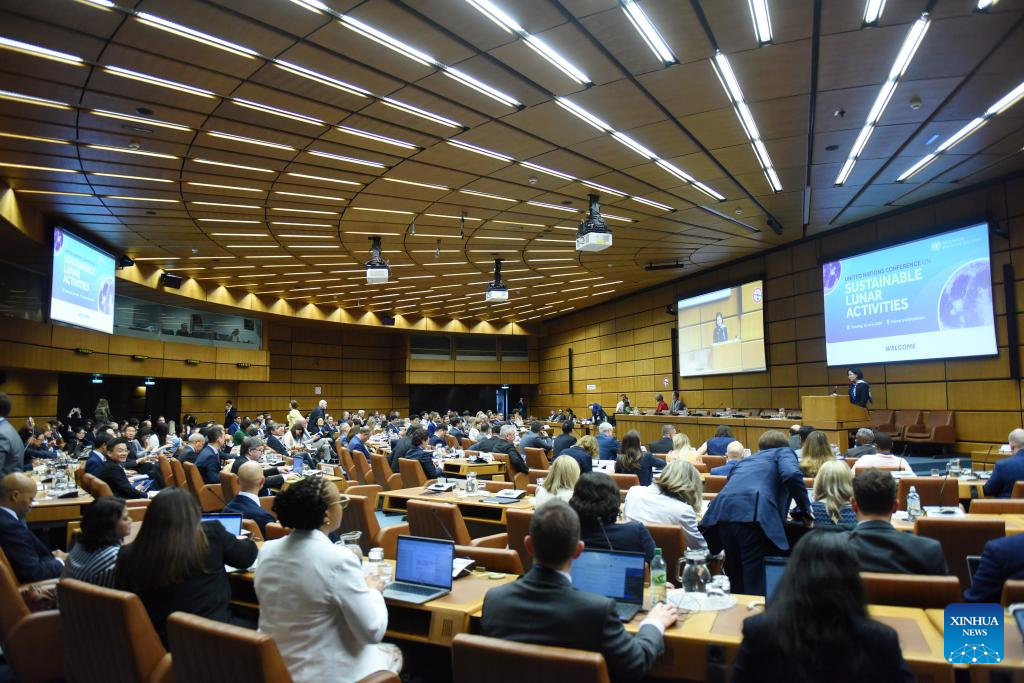BY ADEKOLA BOLUWAJI NIFEMI
The first United Nations Conference on Sustainable Lunar Activities, hosted by the United Nations Office for Outer Space Affairs (UNOOSA) has been taking place in Vienna on Tuesday.
This landmark event convened astronauts, heads of space agencies, the scientific and legal communities, and industry to address common approaches, priorities, and expectations for the peaceful, sustainable, and cooperative exploration of the Moon.
The conference addressed the significant number of lunar missions that are planned in the coming decade, ranging from potential permanent settlements to expanding commercial interests. Building upon those initial considerations, the conference invited State signatories to the Artemis Accords and the International Lunar Research Station (ILRS), the two major international initiatives for lunar exploration, to exchange views on the origins, goals, and ambitions of lunar programmes. Finally, the conference concluded with an interactive workshop to start discussing possible common priorities and expectations for peaceful, safe, and sustainable lunar activities.
Key takeaways from the conference include the importance of transparency, the role of interoperability, the usefulness of dedicated international platforms for consultations among stakeholders, the significance of predictability and proactiveness, the driving and unifying value of science, and the benefits that exploring and using the Moon can deliver to all humanity.
Held ahead of the 67th Session of the Committee on the Peaceful Uses of Outer Space (COPUOS), the conference is intended to support Member State-driven discussions on relevant topics within COPUOS, such as for example the potential establishment of an Action Team on Lunar Activities Consultations (ATLAC).
Director of UNOOSA Aarti Holla-Maini said: “As we look at the night sky, I believe that each and every one of us wants to preserve our planet’s largest, natural satellite. This first UN Conference on Sustainable Lunar Activities has shown that there is a growing international consensus of the need for consultation and coordination on lunar exploration rather than a ‘space race’ or division of space policy. As was the case when countries came together to negotiate the 2019 Guidelines on the long-term sustainability of outer space, I am confident the Committee on the Peaceful Uses of Outer Space will also advance on these much-needed activities and on topics such as space resources, leveraging expert-driven consultations as a mechanism to do so. Watch this space.”

